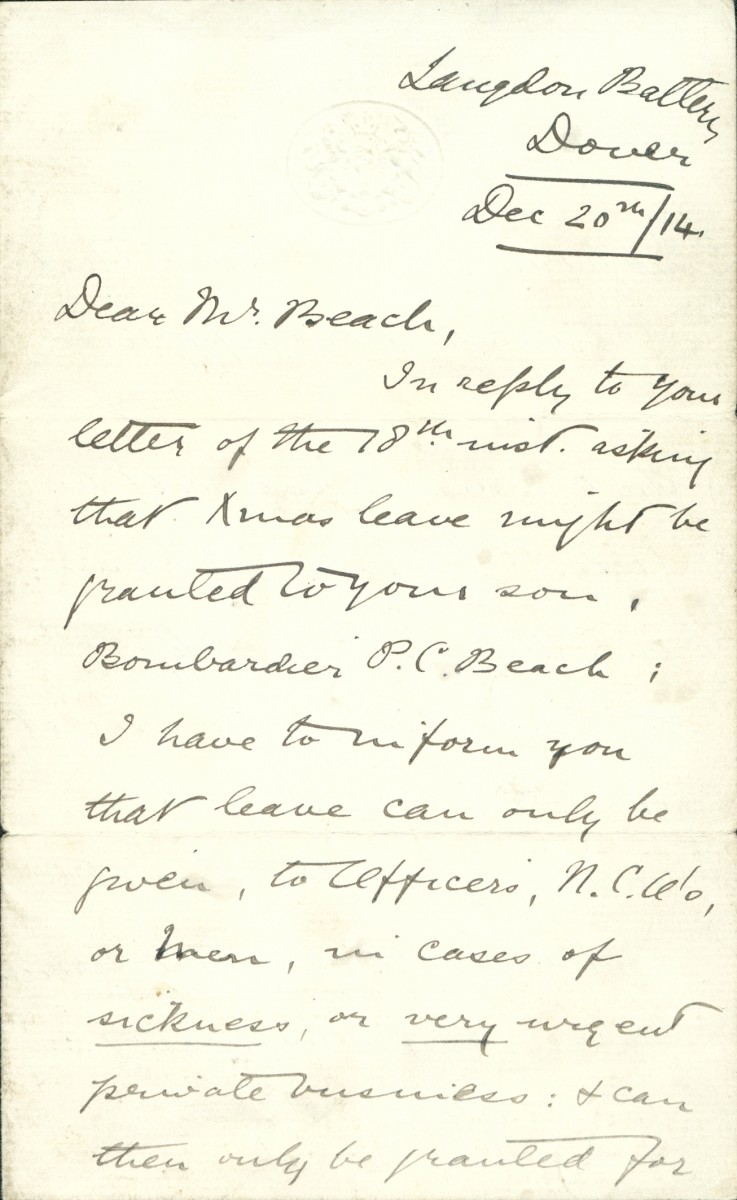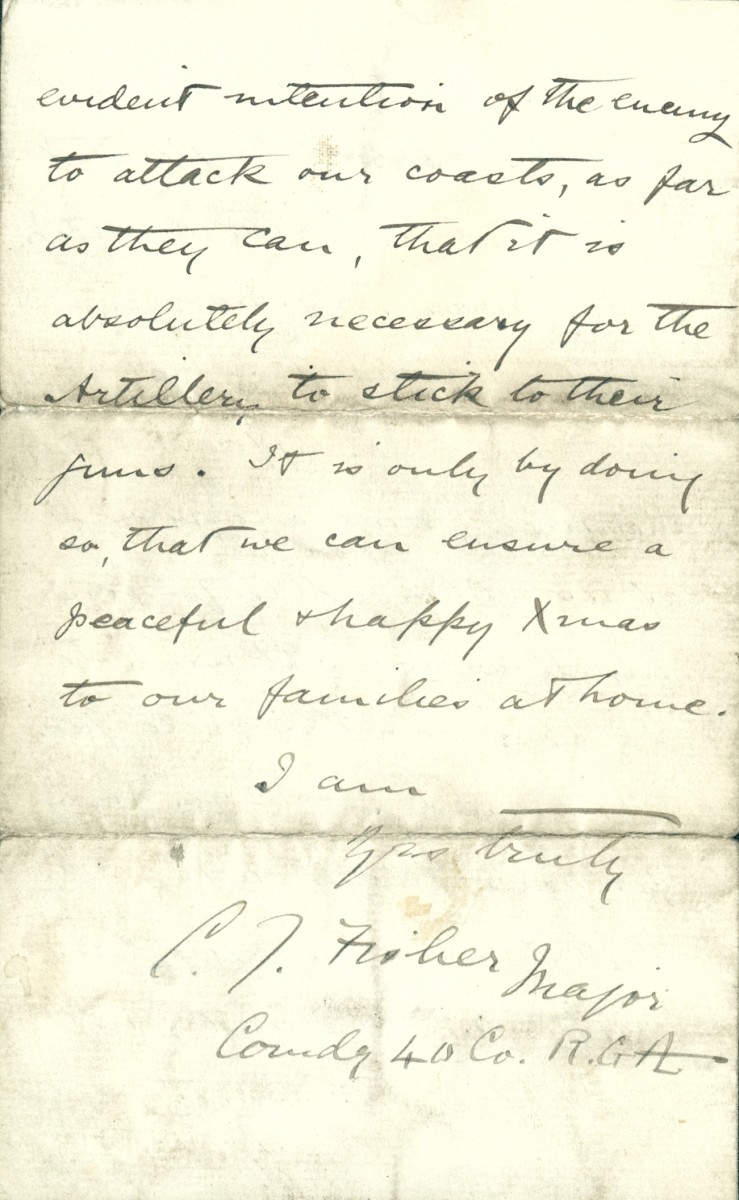Letter to Mrs Beach from the Commanding Officer of 40 Company RGA
For December's Object of the Month we have selected one of the tens of thousands of items from our archive and it is particularly topical for this time of year.
A few days before Christmas 1914, Mrs Beach wrote to the officer commanding 40 Company RGA and asked that her son Philip might be given leave so that he could come home.
This letter is Major Fisher’s reply, which must have been a bit of a disappointment.
“In reply to your letter of the 18th Inst. asking that Xmas leave might be granted to your son, Bombardier P.C. Beach; I have to inform you that leave can only be given, to Officers, N.C.O.s, or Men, in cases of sickness, or very urgent private business.”
Unfortunately, we don’t have Mrs Beach’s original letter, and we don’t know any of the background. Did Philip know that his mother was writing to his commanding officer? Did he encourage her to do so, or would he have been embarrassed to find out about it?
Major Charles Fisher had retired ten years earlier, having served in the Royal Artillery for twenty-five years in Malta, Egypt, India and the UK. He was fifty-three when WWI broke out but presumably volunteered for service again. He clearly took some trouble to explain to Mrs Beach that her son was not being treated unfairly.
“This seems hard, & is hard; -but it is the same for the Officers as for the men, & we are, none of us allowed to go home, much as we all wish to do so; so it is quite fair all round”.
40 Company Royal Garrison Artillery was a coast defence unit. They had been based in Dover for some years, and their guns were part of the defences of the Port of Dover and the English Channel.
As it happened, coastal units like 40 Coy RGA saw very little action during WWI, as there were few naval attacks on the UK mainland. However, one of the most serious was the bombardment of Scarborough which took place just two days before Mrs Beach wrote her letter, and must have been in Maj Fisher’s mind when he replied.
“I am sorry for your disappointment, but I am sure you can quite understand, in the light of recent events, & the evident intention of the enemy to attack our coasts, as far as they can, that it is absolutely necessary for the Artillery to stick to their guns. It is only by doing so, that we can ensure a peaceful & happy Xmas to our families at home.”
It is not clear if Bombardier Beach was able to spend any Christmases at home during WWI – many soldiers did not. However, we know that he survived the War (he remained in the Royal Artillery until 1927) so hopefully he got to spend many future Christmases with his mother.


